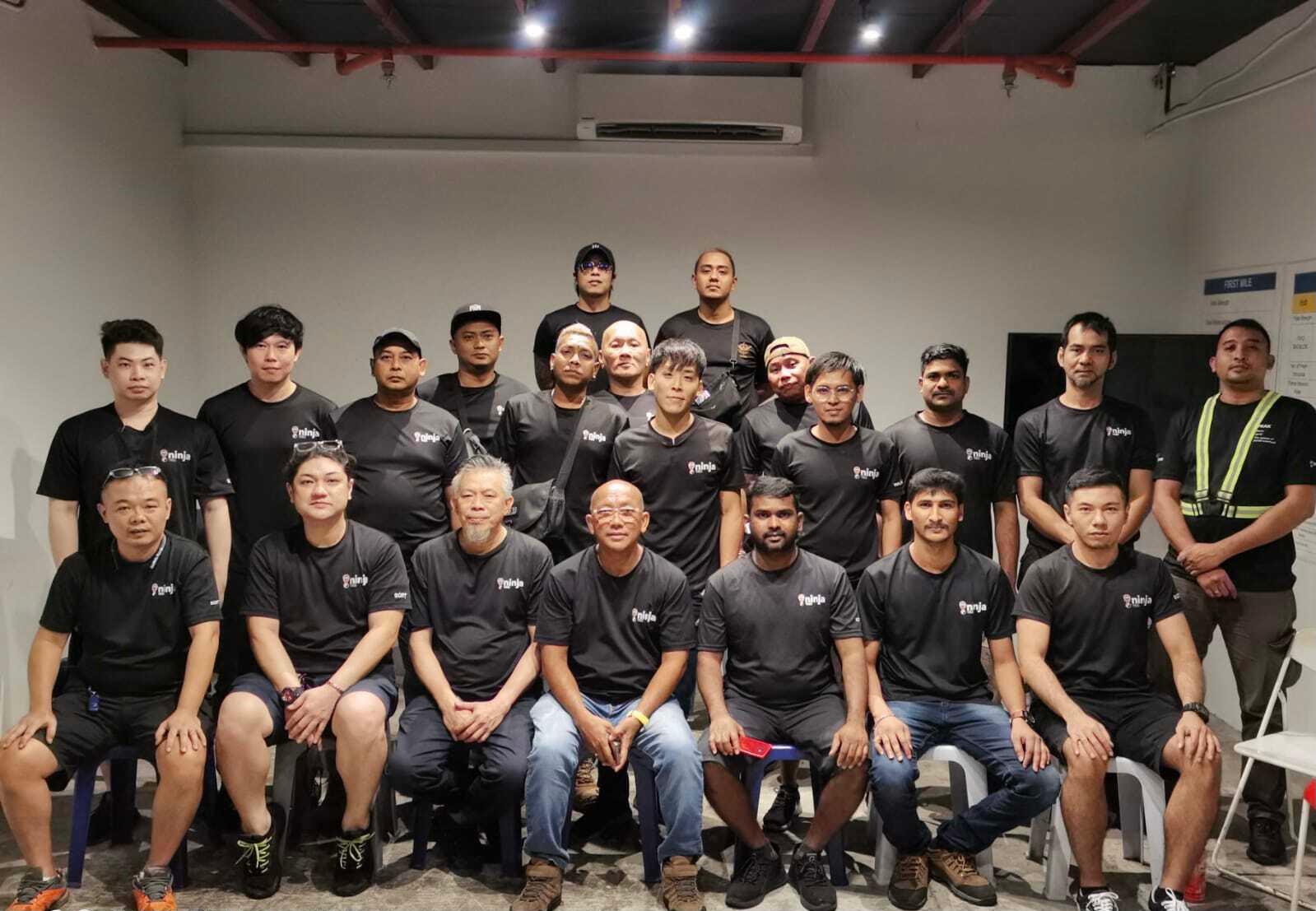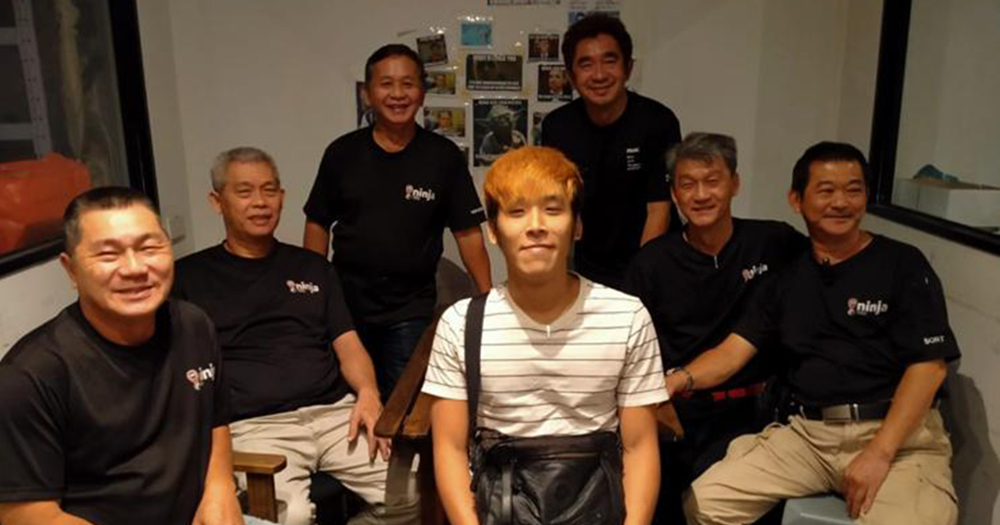PERSPECTIVE: "There's a lot of ways of seeing 'success'."
In January 2015, Ong Boonyong joined Ninja Van as their fourth driver at the age of 22, after completing his National Service.
Here, he shares his views on being a delivery driver, the long-held social assumptions and prejudices about blue-collar jobs, and how Singaporeans should not judge someone based on their profession.
Currently, Ong leads a team of around 30 drivers.
As told to Matthias Ang
I've been a delivery driver for the past six years and it is a honest and humble living.
People from the previous generation will tell their children or grandchildren, "When you grow up, I hope you become a doctor or lawyer, or whatever, then you will get to earn more, you'll be well-respected and people will speak to you in a more civilised manner."
Many Singaporeans see blue-collar jobs, such as cleaners and drivers, as lower-paid work that is not suitable for them or their children.
That’s the sad truth of the matter.
How did your parents respond to your decision to become a driver?
When I told my dad of my plan to become a driver, he asked me: Why choose to be a driver, out of all jobs? But I know his question was his way of showing concern for me.
At that time, I had just ORD-ed and had never been a driver before so I thought of trying [the job] to see what kind of experience I can get.
I spoke to my dad and told him that I wanted to become a driver. He was shocked. He had the impression that the job of drivers is usually taken up by the middle-aged uncles.
He questioned my decision immediately as his mindset was that one shouldn’t be a full-time driver at such a young age. He actually preferred for me to hold an office job, or a job like a mechanic or technician, which will allow me to pick up more 'practical' skillsets as compared to being a driver.
Why do you think people have such attitudes toward blue collar work?
The typical rude comments generally follow a stereotypical mindset, saying how blue-collar jobs like ours hold no future or career prospects, and that we’ll amount to nothing. I think it’s assumed that white-collar workers are superior as they require a higher level of education.
I don’t think it’s easy to challenge these general perceptions, but I think it starts with having conversations like this, and having an open-minded outlook on redefining success.
There's a lot of ways of seeing 'success'.
To a lot of people nowadays, maybe the youngsters, success is driving a branded car, buying branded goods, having a lot of savings and maybe even a house. I think this is the most typical form of 'success' that a person would want.
To me, success is having a stable career and stable relationship. I think it is difficult to handle both of these together, so maybe a 'successful' person is able to do both.
Joining a delivery company and enjoying the work
After completing NS, I thought of pursuing my studies but then realised I might drop out halfway. I studied automobile repair while in ITE. I had absolutely no interest in studying and I felt very tired while doing it.
I decided I'd rather save up the money for future use than try my luck on studying.
I was introduced (to this job) by a friend, who knew that I was looking for a driver job. After seeing several listings, I decided to go with Ninja Van as I felt they were offering quite a rather decent salary for new drivers.
My dad was quite OK with me not continuing my studies as he is not one to stop me from pursuing anything in life. He stopped questioning further when he saw that I was determined to proceed with this.
Currently, I have a team of around 30 people for both day and night shifts. I also help out on the side if required, depending on the parcel volume (such as during the peak period of sales). On a day to day basis, I have to make sure everything runs smoothly on the ground.
I'm quite thankful to my team because I won't be where I am today if they didn't help me with the groundwork.
I enjoy seeing and experiencing the sense of camaraderie during peak periods, where everyone from various teams will come down to help push out the parcels. Despite being very tired, we manage to have fun while 'suffering' together.
Without them, I won't enjoy the work that much. I treat them like my family also.
 Photo courtesy of Ong Boonyong
Photo courtesy of Ong Boonyong
Both blue-collar workers & white-collar workers need each other
As times change, we should not differentiate between blue-collar or white-collar workers.
I think no matter the type of job, whether you are a white-collar or blue-collar worker, we all need each other.
We shouldn't be like "I'm superior, you're not."
White-collar workers need us for their lifestyles, to deliver things to them, help them send out things, or transfer things to another place. Blue-collar workers also cannot say they are superior because if there are no white-collar workers, they won't get their salaries processed.
The good thing is that my company's management sees both white-collar and blue-collar workers as crucial for the business to run.
In fact, one of the earliest and most memorable experiences I had was seeing how the founder, Chang Wen, was pulling pallets and delivering parcels with all of us on the ground.
The company also recognises ops staff like myself, and offers us the opportunity for promotion to decision making roles.
It’s something I appreciate. Too often, there’s a disconnect between decisions made by the top and the work done on the ground.
When people know that there's an opportunity for their role to transform and for them to take on more responsibility, they’re less likely to quit too. This not only helps to bridge this gap between different management ranks, but also helps to boost staff morale.
Is there anything you'd like to tell Singaporeans?
I think generally, we hope to seek the understanding of our customers, especially during peak periods where parcel volume increases by over two to three times.
Sometimes, when I see all the complaints on social media, I do feel a bit affected as all of us are working very hard to push out the parcels as quickly as possible.
But we’ve also come across very gracious shippers and customers, who would go the extra mile to help us save time, like preparing the payment in advance for COD (cash on delivery) parcels, or gift us angpows and goodies during festive seasons.
Small gestures like passing the drivers a drink or food also means a lot us and really helps the drivers.
Quotes have been edited for grammar and clarity.
Top image courtesy of Ong Boonyong
If you like what you read, follow us on Facebook, Instagram, Twitter and Telegram to get the latest updates.
